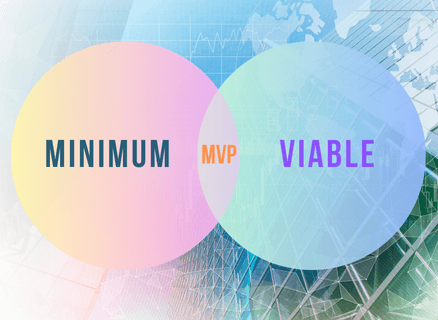MVP development
Software development
Product strategy
Discovery phase
Agile development
Data analytics
Real project examples
MVP in Software Development: Why Building Less Can Lead to More Success
Iliya Timohin
2024-11-29
In today’s fast-paced tech landscape, building a Minimum Viable Product (MVP) has become a cornerstone of software development. Rather than aiming for a fully-featured product from the start, MVP development focuses on solving core problems and testing essential functionalities. This approach not only reduces risks but also allows for iterative growth, cost-efficiency, and faster market entry. This article explores why building less can lead to greater success by leveraging the power of MVPs.

The Power of Focus: Solving Core Problems with an MVP
An MVP is about focusing on the problem that your product is designed to solve. By concentrating on the essential features that address the primary pain points of your target audience, you can streamline your development efforts and deliver tangible value.
Key benefits of this focus include:
- Faster development timelines.
- A clear understanding of what matters most to your users.
- Avoiding feature bloat, which often delays launches and confuses users.
Example: Dropbox launched with a simple demo video showcasing its core functionality—file synchronization. This laser focus helped validate the idea without a fully built product.
Learning Through Feedback: How MVPs Accelerate Market Validation
An MVP allows you to gather user feedback early in the process, helping you validate assumptions and make data-driven decisions. This feedback loop ensures that your product evolves in alignment with user expectations.
MVP testing and feedback strategies:
- Launching a beta version to a select group of users.
- Analyzing usage patterns to determine feature priorities.
- Conducting surveys or interviews to refine product goals.
This real-world feedback helps avoid costly missteps, ensuring that subsequent iterations deliver what users actually need.
Cost-Efficiency and Time-to-Market: Benefits of Building an MVP
Building a full-featured product requires significant investment in time, resources, and finances. In contrast, MVP development optimizes these inputs by focusing only on essential features.
MVP benefits for startups and businesses include:
- Lower initial costs, making it an ideal strategy for budget-conscious startups.
- Faster time-to-market, which is crucial for gaining a competitive edge.
- The ability to start generating revenue or funding with a functional product.
Example: Instagram initially launched as a simple photo-sharing app with basic filters. Over time, it evolved into the multifaceted platform we know today, guided by user insights.
Iterative Growth: How MVPs Support Continuous Improvement
The MVP strategy aligns seamlessly with agile development methodologies, where constant iteration is key to success. After launching an MVP, developers can incrementally add features based on user needs and market demands.
How MVPs foster growth:
- Frequent updates maintain user interest and engagement.
- Scaling becomes easier with a proven product foundation.
- Insights from the MVP phase inform smarter resource allocation.
This iterative approach not only enhances the product but also builds user trust and loyalty over time.
Overcoming Challenges: How MVPs Minimize Risks in Development
Launching a product always involves uncertainties, but MVPs help mitigate risks by offering a controlled and focused path to market entry.
Key risk-reducing advantages of MVPs:
- Testing product viability before full-scale investment.
- Identifying market fit early to avoid misalignment with user needs.
- Gaining stakeholder confidence through real-world results.
MVP success stories: Companies like Airbnb and Twitter started with bare-bones versions of their platforms, allowing them to test concepts, refine their offerings, and grow into global giants.
Why MVPs Are Essential for Success in Software Development
In the competitive world of software, an MVP provides the perfect blend of speed, efficiency, and flexibility. It empowers startups to validate their ideas, businesses to optimize resources, and developers to focus on delivering impactful solutions.
Whether you’re a startup founder, product manager, or developer, embracing the MVP approach can transform your software development process. By building less, you position yourself for greater success—achieving faster results, smarter iterations, and more meaningful connections with your users.

Ready to build your MVP?
Contact us to explore how we can bring your vision to life with an efficient and cost-effective development strategy.